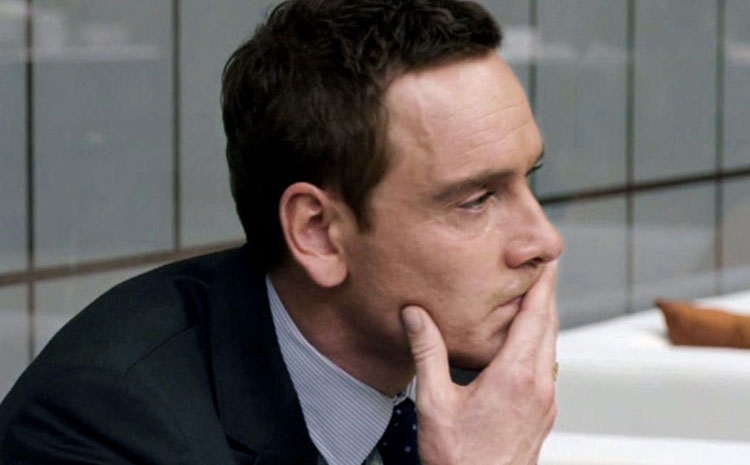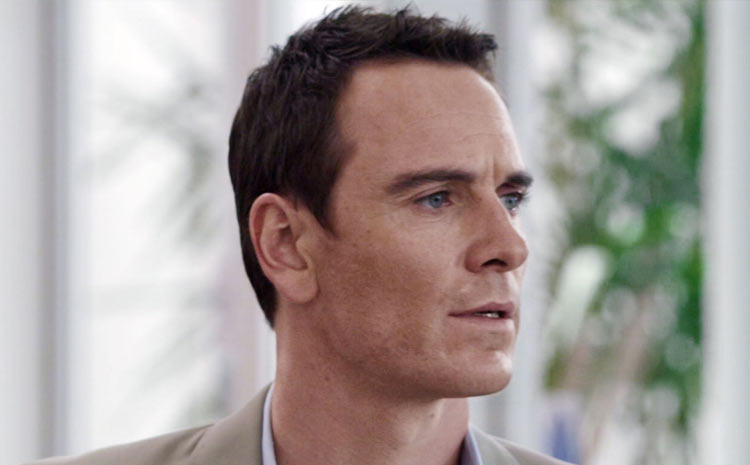
|

|

|

|

|

|

|

|

|

|

|


Philosophical Thriller
I think the main thing we all should pay attention to is the fact that the script was written by Pulitzer Prize winner classic of American literature 80th Cormac McCarthy. He wrote the book "The Road" and "No country for the Old Men," the film adaptations of which one have had much success in the world of Film Festivals. If we compare these films - "Old Men" and "The Counselor" - they form a kind of dilogy: each one focuses on the problem of death which is in itself an inexplicable irrational thing that acts on the contrary to human logic. The existence of the characters in these films at the same time is the road to life and escape from the death.
Unnamed "Counselor", played by Michael Fassbender, according to film-legend is a successful lawyer (apparently this is where this almost derisive nickname is coming from). He has a girlfriend (Penelope Cruz) with whom he is madly in love. Ridley Scott begins the story with the sex scenes: wrapped in pristine white sheets lovers indulge in sensual games. The scene itself looks somewhat ridiculous in its flashy theatricality: "How do you know what to do?" - Exclaims Cruz's character during oral petting, "I poisoned by you," - she continues. But we need to remember that director needed to show us the original purity and whiteness of their relationship just like the love that we used to watch to in the movies. Behind the open window through white curtains again we notice that biker crosses the desert landscape at insane speed: in the beginning of the film, before the titles, we are given a concentrated metaphor which already contains everything that we should see.
The distinguishing feature of this film is the fact that it's metaphoric: a trouble for those who will perceive the work of Cormac McCarthy and Ridley Scott as a thriller expecting exciting chases and cheerful gunplays. In "The Counselor" each of the characters explains himself with philosophical phrases filled with ultimate meaning that's why in some moments this film looks like a parable. This is the place where ordinary bandits are talking with pathos of ancient Stoics about oblivion, meaning of grief and the inevitability of death. Indeed, much attention is paid to stoicism here. One of those involved with the Mafia blames Counselor that he continues despite of everything to deny reality, almost like Seneca saying that destiny guides only those who agree - those who do not agree it drags. In this film Stoic ideas about fearless acceptance of one's fate are mixed with ideas of the inevitability of Christian retribution. However, the retribution in itself in McCarthy's literature universe is a kind of randomness that simply could not to exist at all. Perhaps it is not retribution but an endless chaos which acts on the principle of "heads or tails."

The Counselor's tragedy is that he is different: in a world the threshold of which one he wished to step over, the counselors with all their procedural rules and legitimacy are "outsiders." No wonder Brad Pitt's character warns him: "You canít live in this world and not to be a part of it." Counselor's mates know their places to be - Rayner (Javier Bardem) and Westray (Brad Pitt), though are running from death, but are well aware that in "their world" it's inevitable, and when it comes Ė it's useless to resist. But Counselor is pure and naive, he really thinks that death can be "outspoken" even while one of the mafia bosses tells him about humility and that his world is just an illusion because the real world is no more than "thing in itself."
Cormac McCarthy and Ridley Scott showed us the agonizing process of "understanding" which is accompanied by tearing down those snow-white curtains that so nicely hide the inevitable.
